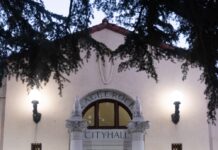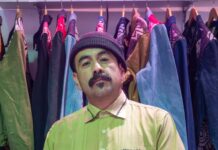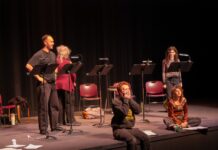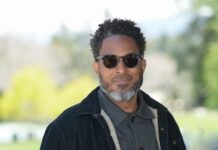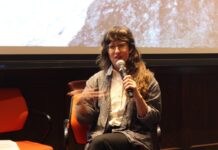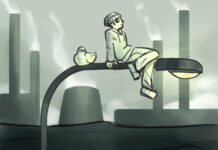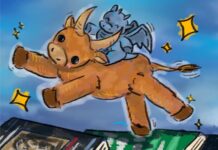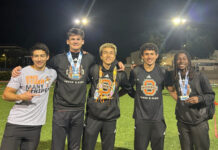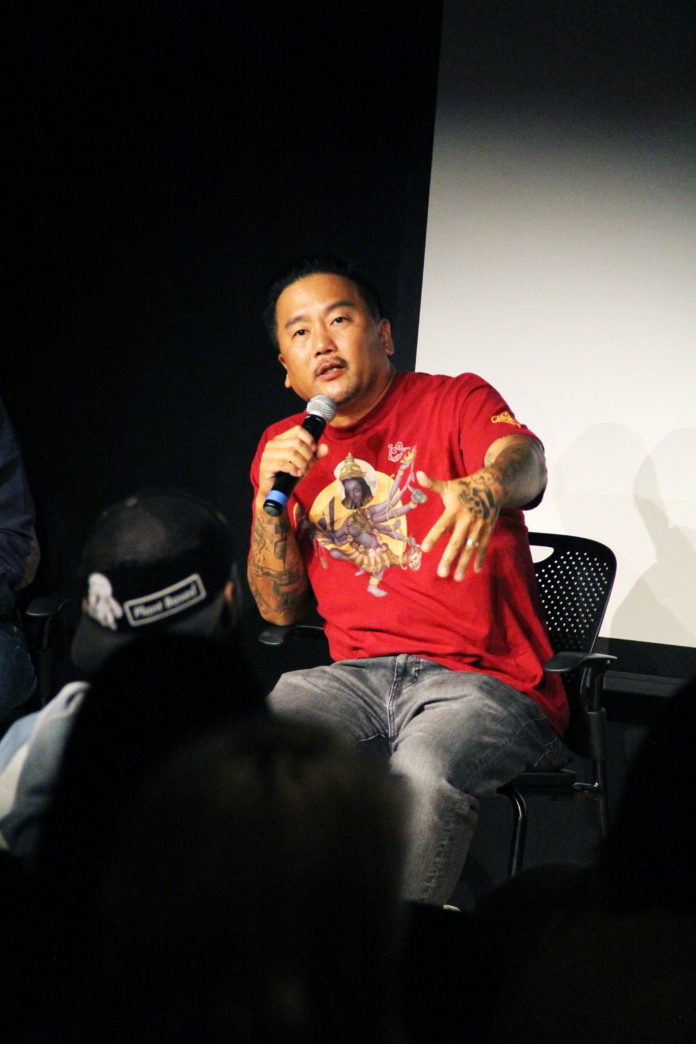
Chef Roy Choi, owner of Kogi; Olympia Auset, entrepreneur and SÜPRMARKT owner; and Duane Earle, owner of Earle’s on Crenshaw, sat with their friends and family in the audience before coming together to speak on a panel Sept. 25.
A father with his young son, a couple who both work at Occidental, and a family of five sat in the front row. A light buzz of chit chat filled the black-walled room as the audience awaited the start of ‘Broken Bread,’ one of Oxy Arts’ many events from the “Breaking Bread in LA” series, moderated by Media Arts & Culture (MAC) professor Broderick Fox.
“This year’s theme is Breaking Bread in LA and connecting communities and cultures through food,” Fox said. “We’re really looking at the idea of food both as a sort of biological necessity, but also as a really interesting space around cultural connection, community formation, but also a significant number of emerging issues around social justice.”
The evening of the event, Occidental students, alumni, faculty and staff and Eagle Rock community members came together to watch an episode from KCET’s series ‘Broken Bread,’ titled “Access.“ The episode featured Choi, Auset and Earle and was produced by Juan Devis. Following the screening, there was a panel where the guests spoke about the episode’s production and answered audience questions about food justice, the message of the episode and their personal endeavors.
“Access“ brought attention to the lack of access to healthy, affordable food in the South LA region and showcased individuals like Auset and Earle working to eliminate this problem. According to Auset, there are only 60 grocery stores in the region stocked with unhealthy, processed items for 1.3 million residents.
“We have this huge problem with nutrition and lack of access within our country,” Choi said during the panel discussion. “And we were constantly, over the past two, three or four generations, we are hitting our head. We have activists on the ground, every single day with their fists up in the air, fighting with every breath that they have, and it’s not moving the needle at all.”
The issue of food goes far beyond access; there is a deeper issue in the way we look at food in the community, according to Auset. Auset emphasized there is no shortage of food, but there is an inherent issue in the way food is distributed. The series, and in particular this episode, reveals the unseen stories behind food. It’s not just about what we put in our mouths or what we put in our kids’ mouths, it is about the culture, the community and the familial roots embedded in each bite, according to the episode.
“One day, I sat down with the entire team. I was like, you know what, food is really important, but we need to try to approach it in a different way,” Devis said during the panel discussion. “Food is about history, memory, community. What we were trying to do is find people that love food, chefs that are borrowing from culture, community history, and who are innovative. And the show really resonated really well. And it’s sort of filled the void in what food stories were about.”
Choi is one of the producers and the host of the ‘Broken Bread’ series. Widely known for inspiring a new era of food trucks through starting his Korean taco truck, Kogi, and hosting Netflix’s “The Chef Show,” he is passionate about bringing awareness to the issues of food justice and food access. He said he works to shine a light on people who are grinding to solve the problem of food access.
“We can continue to be antagonistic about it and find divisiveness and decide who’s wrong, or we can try to just all admit that it’s kind of bad and just press the reset button, and that was kind of the goal of this show,” Choi said during the panel discussion.
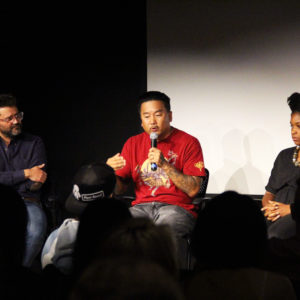
Despite his celebrity status, Choi remained humble throughout the evening, keeping the attention off of him and directing it towards the individuals spotlighted in the episode. According to Fox, throughout the planning of the event, Choi emphasized the importance of keeping the spotlight on the individuals highlighted in the episode.
Auset and Earle were two of the individuals featured for their work around food access. Auset, a South LA native, is the founder of SÜPRMARKT, a delivery service and pop-up store providing healthy, local ingredients to their clients at a low cost. As a vegan living in South LA, Auset found herself having to travel two hours by bus to find healthy produce. Her business is centered around scouting the damaged or ‘ugly’ produce that would normally be discarded, buying it at a low price and distributing it through boxes to her customers. One clip of the episode showed her delivering a box to one of her long-time customers, who expressed her gratitude to Auset for giving her an easy and affordable way to feed herself and her young son. Motivated by her own challenges, Auset has turned to helping other families stay healthy.
“Sharing is caring, and as hard as it may be for us, there’s other people that are just starting so always [remember] to reach back and help out the people around you wherever you can,” Auset said.
Duane Earle is the co-founder of the famous Earle’s on Crenshaw Boulevard, which he runs alongside his brother. Earle’s started as a hotdog cart on the streets of South LA after Earle and his brother moved from New York. The Earle brothers have grown their cart over the last 30 years from a red-lighted cart on the gang-infested streets to their media-acclaimed store on Crenshaw Boulevard, according to Earle. Today, Earle’s has been named “One of South LA’s most prominent restaurants” by Eater LA. Serving meat, vegetarian and vegan options, they attract customers of all kinds. According to Earle, their clientele is about 50 percent meat eaters and 50 percent vegan, with many loyal customers following them since their first days on the street. Earle credits the community around them for their success over the last 30 years.
“The only thing we can do is keep doing what we do best, stick with the grind,” Earle said during the panel discussion. “It’s an eight-day work week for us. Somebody will see what we do. Eventually somebody will notice. Don’t give up. That’s all I can say.”
One focus of the panel discussion was around food, family traditions and culture. The panelists related this back to the issue of food access, saying that a lot of these traditions are still surrounded by unhealthy, processed foods because that is all some communities have access to. The traditions do not have to be stripped away, but there needs to be an affordable and accessible way for families to be able to incorporate healthy foods into their traditions.
“There is rich culture in community and food, even in communities and in streets and blocks and neighborhoods that don’t have money,” Choi said during the panel discussion. “You know, there’s always a birthday party, there’s always the grandma family recipes. The only caveat to that is that the products that are being used are still processed products. But the recipes are rich and deep.”
For Auset, the issue of health in poor neighborhoods is something she experienced firsthand growing up in the South LA community.
“I’m 28 years old, and the number of people who I can count who dropped dead at less than 60 years old over preventable diseases — that’s not something I can gloss over,” Auset said during the panel discussion.
Choi said he hopes to continue using his platform to bring light to food and social justice issues.
“I hope to do a Broken Bread season two,” Choi said. “I think there are many more topics to cover, many more cities to cover. We only showcased 12–14 people. Imagine if we could showcase another 12–14 and the stories continue to penetrate the American consciousness.”
![]()







